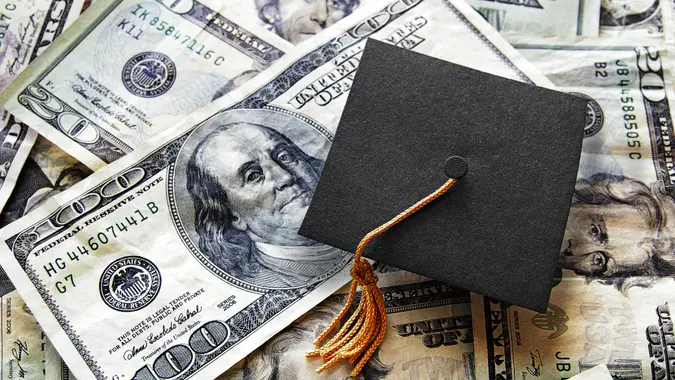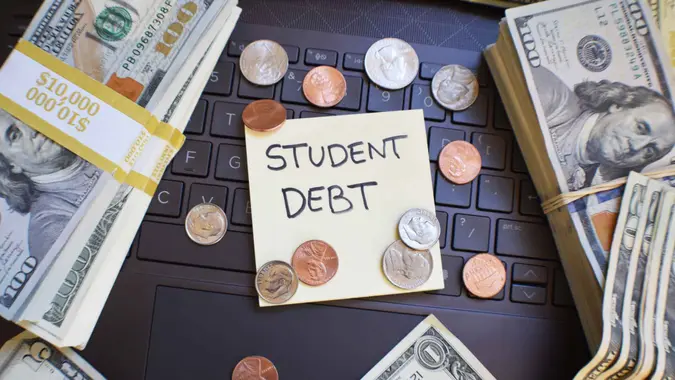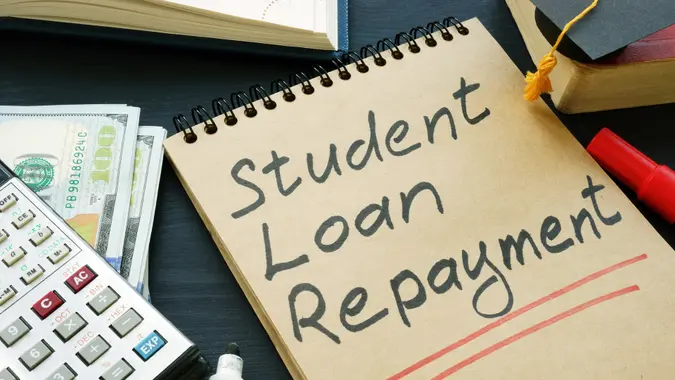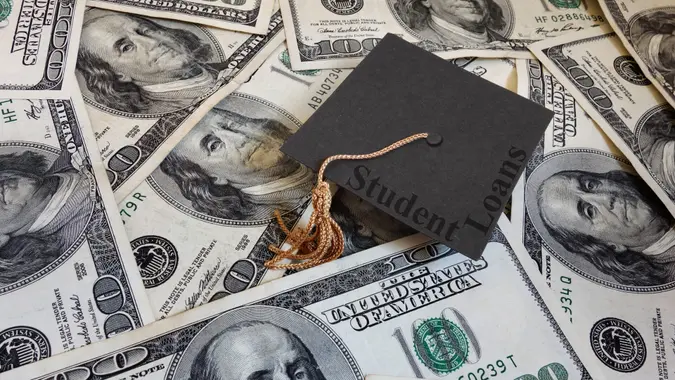Student Loan Borrowers Have an Advantage If the US Defaults — Here’s Why

Commitment to Our Readers
GOBankingRates' editorial team is committed to bringing you unbiased reviews and information. We use data-driven methodologies to evaluate financial products and services - our reviews and ratings are not influenced by advertisers. You can read more about our editorial guidelines and our products and services review methodology.

20 Years
Helping You Live Richer

Reviewed
by Experts

Trusted by
Millions of Readers
The prospect of a government default is causing nightmares for many Americans, largely because of the negative impact it would have on everything from stock prices and interest rates to jobs and government benefits. But for federal student loan borrowers, a default could have at least one advantage in the form of interest rates, The Wall Street Journal reported.
As the WSJ noted, interest rates on federal loans are set once a year, during Treasury note auctions. This year’s auction occurred last week. Rates for federal loans first disbursed on or after July 1, 2023, are projected to increase to 5.49% from 4.99% for most undergraduate loans — not exactly happy news, but better than what might happen in the event of a default.
If that happens, the Federal Reserve will likely hike interest rates to bring in more money to the Treasury Department. However, federal student loan rates will be protected since they are already locked in.
That’s a luxury that Americans with private student loans won’t enjoy. In fact, those borrowers could see their monthly payments rise by $23 or more following a default, the WSJ reported, citing estimates from the Congressional Joint Economic Committee.
Meanwhile, the clock is ticking on passing a bill that would let the U.S. avoid a default. Treasury Secretary Janet Yellen earlier this week reiterated her position that a default could happen as early as June 1 if Congress doesn’t raise the debt limit before the end of this month.
There appears to be progress this week in talks between President Joe Biden and U.S. House Speaker Kevin McCarthy, who agreed to negotiate directly on a deal, Reuters reported.
“To be clear, this negotiation is about the outlines of the budget, not about whether or not we’re going to (pay our debts),” Biden told reporters on Tuesday. “The leaders (of Congress) have all agreed: We will not default. Every leader has said that.”
The fear among Democrats is that the president might cave on some of the demands included in the Republican-led House bill. That bill includes $4.5 trillion in spending cuts and also takes aim at federal student loans on a couple of fronts.
The House bill would immediately eliminate Biden’s student loan forgiveness plan, though this might be a moot point, anyway, of because legal challenges to the plan.
House Republicans also want to halt Biden’s proposed overhaul of income-driven repayment from going into effect, Forbes reported. That overhaul aims to reduce monthly payments for millions of borrowers and accelerate loan forgiveness.
More From GOBankingRates
 Written by
Written by  Edited by
Edited by 

























